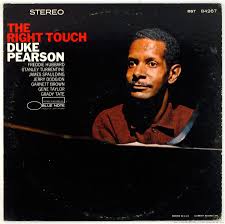 Jazz Corner of the World Encore with host Craig Kessler
Jazz Corner of the World Encore with host Craig Kessler
Mondays at 6:00pm
Acoustic Jazz Piano Jamboree, Part 3
Craig celebrates Red Garland by spinning pieces that feature him as a leader, and also as an important sideman with John Coltrane, Miles Davis, and many others.
The Wednesday Night Special
Wednesdays at 6:00pm
Blake Shaw at Jazz Under the Stars
Our celebration of Jazz Appreciation Month, where we spotlight jazz making in the schools, continues with a listen to the area’s outstanding jazz educators. Blake Shaw is a premier bassist, composer, and bandleader. He’s also a talented and well-respected educator at Kirkwood Community College. Blake leads his Big-ish Band at a 2022 Jazz Under the Stars.
 Jazz Night in America with host Christian McBride
Jazz Night in America with host Christian McBride
Thursdays at 11:00pm
Jazz Master Terrence Blanchard
2024 NEA Jazz Master Terence Blanchard has a career spanning three decades in both jazz and film scoring. Christian McBride revisits a 2019 episode on Blanchard’s work with Spike Lee, his E-Collective band, and more.
Jazz Corner of the World with host Craig Kessler
Saturdays from 12 noon to 4:00pm
Acoustic Jazz Piano Jamboree, Part 4
Craig spins a variety of wonderful records that feature Duke Pearson as a dynamic pianist, composer, and arranger. He’ll also take this opportunity to again celebrate the 85th anniversary of Blue Note Records.
KCCK’s Midnight CD
Every Night at Midnight
Each night, KCCK lets you hear a new CD played start-to-finish.
Old Souls by Neal Alger on Monday; Top Dog by Snorre Kirk on Tuesday; Compassion by Vijay Iyer on Wednesday; The Sky Will Still Be There Tomorrow by Charles Lloyd on Thursday; Stone Cold Hand by Sean Riley & the Water on Friday; The Piles High Club by Chief Keegan on Saturday; But Who’s Gonna Play the Melody? by Christian McBride & Edgar Meyer on Sunday.



 Jazz Corner of the World Encore with host Craig Kessler
Jazz Corner of the World Encore with host Craig Kessler
 Jazz Night in America with host Christian McBride
Jazz Night in America with host Christian McBride